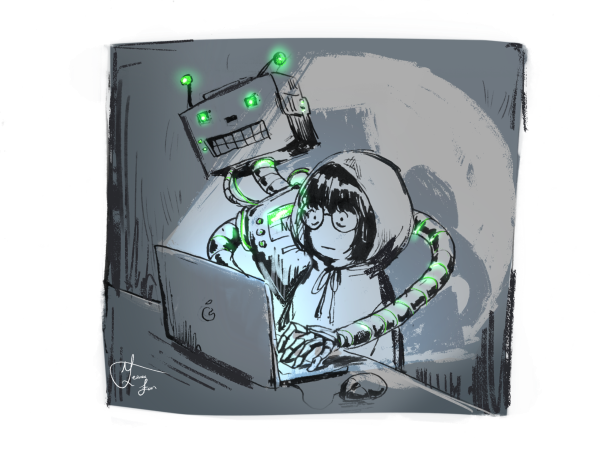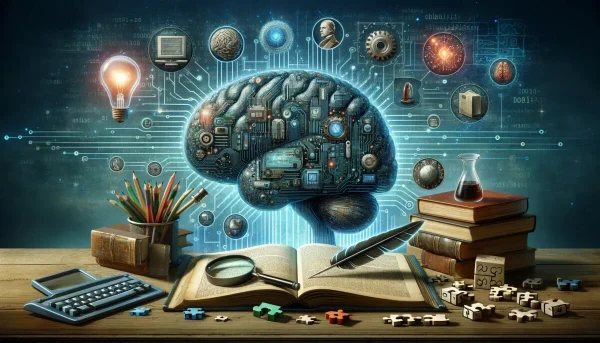
As AI has risen in popularity, high schoolers have been using it to write their assignments. This is why AI needs to be used with caution and not as a replacement for critical thinking, writing, and researching, or they may lose or never even learn how to think critically. They’re using it to do everything for them and not knowing how to think, do good research, or write. These skills have to be taught and practiced, or they will fade away.
Artificial Intelligence was created for problem-solving, decision-making, writing, and executing tasks with speed and efficiency. While this technology can research faster and summarize efficiently, it can be dangerous to the developing mind. It could be hazardous for this generation by not allowing them to learn to write, research, and think correctly. For teachers, this is an irritating issue, but they may be able to help by giving oral tests and having students write essays in class, as this could help students to be efficient with their work and to be confident in themselves.
For one, being unable to think critically is a significant issue, as it hinders one’s ability to navigate life effectively. First of all, thinking is essential to not dying. If you do not think you’re more susceptible to not surviving. Analyzing before doing is vital because if the action is not thought through thoroughly, the result could be potentially disastrous.
Overall, white-collar jobs require the ability to conduct research and write effectively. Researching, processing decisions, and complex systems are essential for the country. These jobs allow the government to flow smoothly and for families to thrive, all of which requires critical thinking. Without these abilities and skills, there would be chaos and disorder.
The issue with the efficiency of AI is that many students tend to become dependent on it. Based on recent research by Microsoft, they said that the use of AI does affect critical thinking techniques. They stated that “higher confidence in GenAI is associated with less critical thinking, while higher self-confidence is associated with more critical thinking”(Wilson). Being entirely dependent on AI is a problem, especially if an entire generation is incapable of critical thinking. Critical thinking is essential to surviving in life, and analyzing and reflecting are integral to living. For example, when considering a large investment, you should pause to consider all possible outcomes.
Some people may ask the question: Why should we learn how to write, research, and think, if AI can do it for us? But the issue with becoming entirely dependent on AI is, if it disappears somehow, how would you live, being incapable of critical thinking, writing, and researching, as these skills are essential to many areas of life? How would you feel being completely helpless without AI?
My solution to the issue of reliance on AI is to enhance testing processes in classes through oral tests, written essays, and in-class work. But the teachers would never have enough time to complete each one; they would get nothing done. If we try a different approach to raise and teach students virtue, we could make our way to fix the dependence on AI by helping students to use AI with caution and to be wise to keep their work unadulterated. AI is here to stay—but our thinking skills don’t have to fade because of it. If schools focus on teaching students how to use AI wisely rather than replacing their own effort with it, we can grow up smarter, stronger, and more independent. AI might help us do things faster—but only critical thinking helps us do things better.









